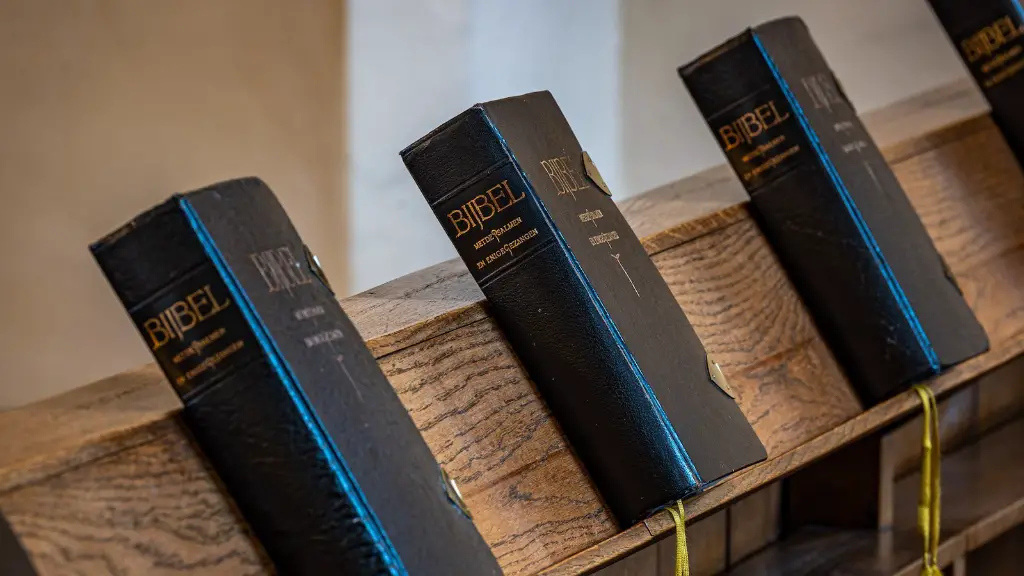Background and Relevance
Jael is an enigmatic figure in the Bible who is renowned for her courage and strength. She is mentioned in the Book of Judges in the Hebrew Bible. There are various interpretations of her story and her role in the biblical stories. According to some interpretations, she is viewed as a heroine while others view her as a villain.
The story is set in the 12th century BC in the time of the Judges. In this period, the people of Israel were vulnerable to the invading forces of foreign nations. According to the Bible, a prophet named Deborah led the Israelites to victory against the Canaanites. The prophet instructed the Israelite general Barak, to challenge the Canaanite commander Sisera. Despite the precision of the prophet’s plans, Sisera managed to flee. Jael is introduced in the story as the wife of Heber the Kenite, a tribe of nomadic people whose devotion to Deborah’s mission was key to the victory of the Israelite forces.
Jael’s story is especially unforgettable and has been produced in various works of literature, music and art. Her story is held up as an example of a strong and independent woman who used her wit and strength to defeat a powerful enemy. Her story has been adapted to suit societies’ changing needs over time and is often talked about in contemporary books, television programs and movies.
Biblical Account
The Biblical account of Jael is found in the fourth chapter of the Book of Judges. Jael is presented as a brave and resourceful woman of the tent, who helps the Israelites in their battle against the invading forces of Sisera. After Barak defeats Sisera’s army, Sisera flees and takes refuge in a tent. Jael, the wife of Heber the Kenite, who is allied to the Israelites, offers Sisera shelter. She then prepares a meal for him and lies to him, telling him that his enemies have fled from the battle.
When Sisera falls asleep, Jael takes a hammer and a tent peg and kills him. When Barak arrives at the tent, Jael shows him Sisera’s body and the hammer and tent peg. The deed is celebrated and Jael is praised for her bravery and ingenuity. Deborah then sings a song in praise of Jael and her courageous deed.
Reception and Significance
Jael’s story has had a wide reception and has been viewed through different lenses depending on time and place. Scholars have often debated her influential role in the victory of the Israelites. Some view her as a hero of the Israelites and a symbol of courage, while others argue she acted out of cowardice and to protect what was most important to her.
In any case, Jael’s story has been remembered and retold throughout history in various works of literature and art. Her story has been embraced by feminists who see in it a role model of leadership and courage. Jael is seen by many as an example of a powerful woman who can make a difference in the world through her determination and courage.
Interpretations of Jael’s Act
Jael has been interpreted in different ways. Some view her actions as a brave deed, while others consider them to be a display of cunning and deceit. While Jael is presented in the Bible as a heroine, there are some textual hints of her being criticized for her ruthlessness.
Jael’s character has been widely discussed by biblical scholars who have offered various interpretations of her personality. Some suggest that she was a woman of passion and courage who chose to act according to her conscience, while others question her morality and the consequences of her actions.
Hero or Villain?
The assessment of Jael’s actions varies with different audiences. Some interpret her actions as heroic, praising her for her courage and loyalty in the face of danger. Others view her actions as nefarious, suggesting that she was motivated by a thirst for personal gain.
Jael’s story often serves as a cautionary tale in religious and political debates. Those who are politically engaged have often used Jael’s story as an example of what is just and right. They emphasize the importance of loyalty and honor in one’s life and suggest that individuals should always act in accordance to their conscience.
Famous Adaptations of Jael’s Story
Jael’s story has been retold and reimagined in various works of art. Poetry and prose have been written in her praise and celebration. She has also been a subject of numerous paintings and other forms of visual art.
In literature and art, her story has been suggested to have both moral and political implications. Feminist artists and writers have often used her story as a template for strong and independent female figures. In more recent works of literature, film and television, Jael’s story has been used as an example of a the struggle against oppressive forces.
Relevance in Contemporary Times
Despite the passing of millennia, Jael’s story is still relevant in today’s culture. Her story speaks to the struggle between good and evil, with her courage and loyalty being championed by many.
Jael’s story is often held up as an example of how individuals can make a difference in the world if they have the courage and determination to do so. Many contemporary works of literature and art have used her story as an inspirational example and her legacy continues to live on.
Impact on Audiences
Jael’s story has been able to capture and move audiences for centuries. Her actions can be interpreted differently depending on the audience, and her story serves as a moral lesson for all who hear it.
Her story has been used to inspire people in all walks of life. She has been praised for her courage, loyalty and ingenuity and seen as a role model for women fighting for their rights. The character of Jael serves as both a warning of the dangers of deceit and a reminder of the power of courage.
Consequences and Legacy
Ultimately, Jael’s actions had far-reaching consequences. Although her story has been interpreted in different ways, it is clear that she was instrumental in the Israelites’ success in their battle against the invading forces. Her calculated and brave deed enabled the Israelites to finally defeat their enemies and ensured the survival of her people.
Deborah’s song of praise for Jael illustrates the significance of her legacy and her courage, themes often found in literature, music and art ever since. Her legacy speaks of strength, courage and faith and has inspired countless individuals who fight for what is right.
Symbolic Representation
The symbolic representation of Jael can be found in various works of literature, art and song. In them, she is often portrayed as a brave and powerful figure who does not shy away from a challenge. She is seen as a beacon of hope for all who struggle in the face of adversity and oppression.
The story of Jael is a reminder that we are all capable of making a difference. She fought for what she believed in and was willing to face death or danger to protect her people. This serves as an example that no hardship is too great when we are fighting for a purpose worthy of our time and energy.


